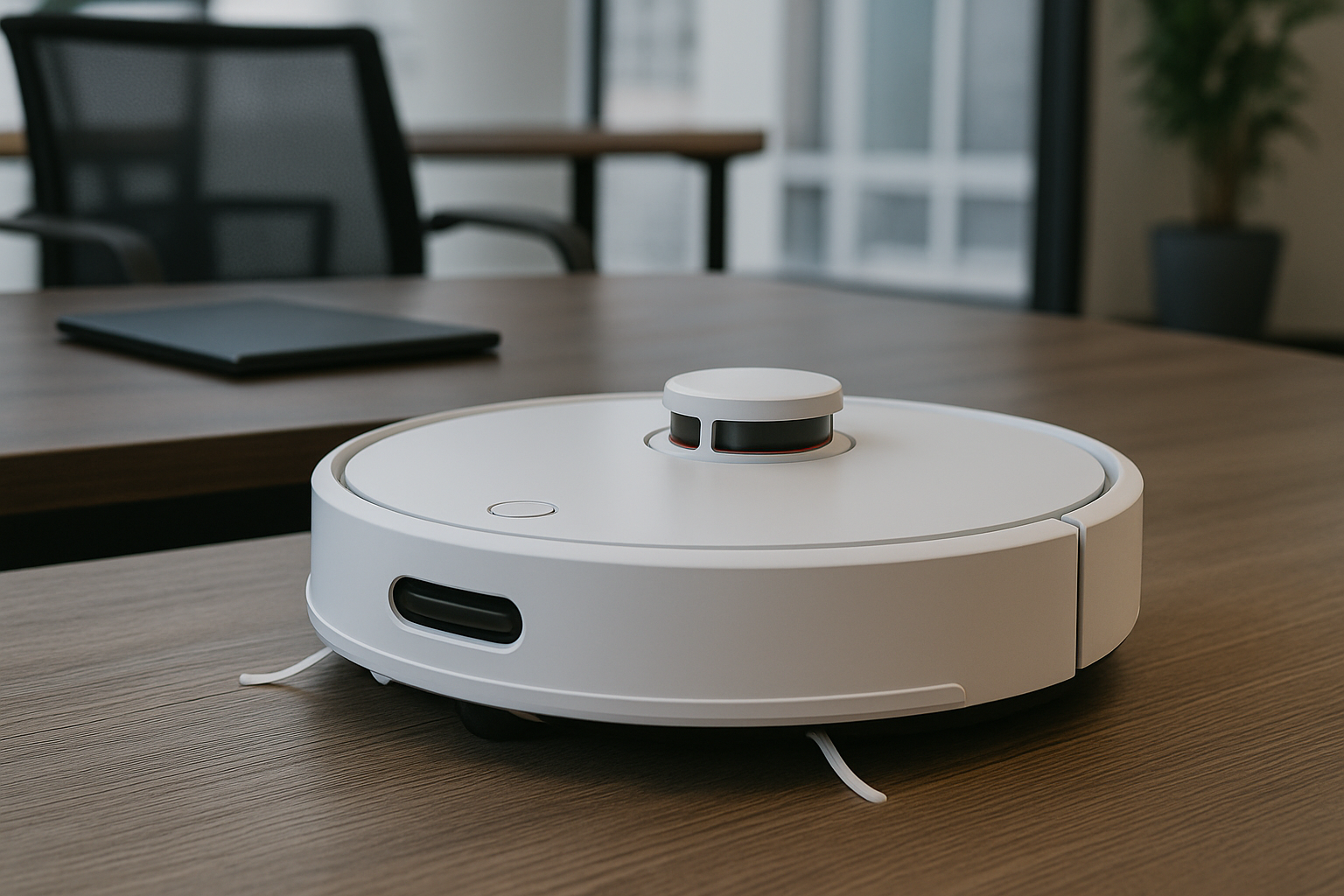The rise of smart cleaning solutions, including robot vacuums, is reshaping commercial environments from hotels to office buildings. While procurement managers and facility operators in Europe and the Middle East have embraced automation to improve efficiency, concerns over privacy and data security are becoming increasingly central in B2B contracts. Robot vacuums no longer merely sweep floors; they map entire facilities, transmit data to cloud servers, and sometimes integrate with broader IoT ecosystems. This makes them not only cleaning devices but also potential data collection points.
In this article, we will explore why data security has become a significant contractual issue, how B2B clients evaluate risks, and what strategies vacuum brands can use to assure compliance and trust—all while embedding key product innovations such as High Suction Vacuum Cleaner, Quiet Vacuum Cleaner, and Cordless Handheld Vacuum Cleaner into the discussion.
🌐 From Cleaning to Data Gathering
Commercial-grade robot vacuums often use sensors, cameras, and LiDAR technology to map workspaces. This mapping data may reveal sensitive details about office layouts, retail floor plans, or restricted areas in hospitals and hotels. For instance, when a Multi-Functional Durable Vacuum Cleaner with smart navigation connects to Wi-Fi, it may inadvertently expose location-based information if not properly encrypted.
Facility managers increasingly ask: Who owns this data? Where is it stored? Who can access it? Contracts now address data ownership rights, retention periods, and compliance with regulations like GDPR in Europe or local data protection laws in the Middle East.
🔒 Commercial Risks of Data Exposure
Competitive Intelligence Leaks: Layout maps collected by a Portable Self-Cleaning Vacuum Cleaner could reveal sensitive details about high-security facilities.
Customer Privacy: Hotels using a Quiet Vacuum Cleaner in guest corridors need to ensure that no audio or visual data is retained.
Regulatory Compliance: If data is stored on servers outside the country, it may violate national privacy laws.
Cybersecurity Threats: Hackers targeting IoT devices could exploit poorly protected Cordless Vacuum Cleaner units as entry points to corporate networks.
These risks explain why clients in industries like finance, healthcare, and hospitality are scrutinizing privacy clauses more closely than ever before.
📊 Contractual Shifts in the B2B Vacuum Market
Procurement contracts for robot vacuums are evolving in several ways:
Data Ownership Clauses: Clients demand explicit confirmation that they, not the supplier, own operational data.
On-Premise vs. Cloud: Some clients require local data storage instead of cloud-based systems.
Encryption Standards: Contracts increasingly require end-to-end encryption for devices like the Energy-Saving Efficient Powerful Vacuum Cleaner.
Audit Rights: Clients request the right to audit suppliers’ data handling practices.
These provisions are now just as important as delivery timelines or maintenance SLAs.
🛡️ Technology Safeguards
Vacuum brands can reassure commercial buyers by integrating advanced safeguards:
End-to-End Encryption: Protects real-time data collected by Cordless Handheld Vacuum Cleaner units.
Access Controls: Only authorized staff should access device data logs.
Anonymization: Removes identifiable information from maps generated by Large-Capacity Wet Dry Vacuum Cleaner systems.
Firmware Updates: Ensures vulnerabilities are patched quickly across fleets of Wet Dry Vacuum Cleaners.
By embedding cybersecurity into the design process, brands can reduce buyer concerns and create a competitive advantage.
🤝 Trust as a Differentiator
Beyond compliance, trust is becoming a key sales differentiator. Facility managers prefer suppliers that are transparent about data handling practices. For example:
A hotel group may choose a vendor offering clear policies for a Car Vacuum Cleaner fleet used in parking facilities.
An office complex may only approve tenders where Fast Lightweight Vacuum Cleaner robots meet ISO cybersecurity standards.
Suppliers who proactively address these needs strengthen long-term relationships.
🏢 Case Example: Hospitality Sector
In the hospitality industry, privacy concerns are acute. A global hotel chain introduced robot vacuums to reduce cleaning costs but discovered that stored mapping data could reveal VIP suite layouts. To mitigate this, the brand switched to a vendor offering 4 in 1 Cordless Smart Wet & Dry Vacuum Cleaner models with encrypted, locally stored data. Contracts were amended to specify data retention limits and mandatory deletion schedules.
This example illustrates how privacy and security can directly influence purchasing decisions in B2B contexts.
📈 Future Outlook
As robot vacuums integrate with broader facility management systems, data privacy will only grow in importance. Buyers will continue to demand contractual guarantees around compliance, ownership, and cyber resilience. Brands that treat data protection as part of product design—alongside suction power, noise control, and energy efficiency—will be best positioned to win global contracts.
🏆 Conclusion
Privacy and data security have become critical issues in B2B robot vacuum contracts because these devices collect, process, and sometimes transmit sensitive spatial and operational information. For procurement managers in Europe and the Middle East, the stakes are high: non-compliance can lead to legal penalties, reputational damage, or even operational risks. By addressing cybersecurity alongside traditional performance features, vacuum brands can strengthen client trust and secure long-term business growth.
📌 Suitable Audience
Commercial vacuum procurement managers, facility service providers, distributors, and product engineers in Europe and the Middle East.
📌
#HighSuctionVacuumCleaner, #QuietVacuumCleaner, #PortableSelfCleaningVacuumCleaner, #MultiFunctionalDurableVacuumCleaner, #FastLightweightVacuumCleaner, #EnergySavingEfficientPowerfulVacuumCleaner, #LargeCapacityWetDryVacuumCleaner, #CordlessHandheldVacuumCleaner, #WetDryVacuumCleaners, #4in1CordlessSmartWetDryVacuumCleaner, #CordlessVacuumCleaner, #CarVacuumCleaner, #RobotVacuumDataSecurity, #RobotVacuumPrivacy, #SmartCleaningSolutions, #IoTDeviceSecurity, #B2BVacuumContracts, #GDPRCompliance, #MiddleEastDataRegulations, #EUDataLaws, #FacilityManagementTech, #HospitalityCleaning, #CorporateDataProtection, #CyberResilience, #IoTPrivacy, #SmartVacuumEncryption, #DataOwnership, #AnonymizedData, #SupplierAudit, #VacuumCleanerProcurement, #CommercialVacuumSolutions, #RobotVacuumTrust, #AIInCleaning, #DataComplianceEurope, #DataComplianceGCC, #RiskMitigationVacuum, #SmartBuildingSecurity, #IoTSupplyChain, #CommercialRobotics, #PrivacyByDesign, #SecureCloudVacuum, #OnPremiseDataStorage, #B2BTechContracts, #CleaningAutomation, #SmartFacilityManagement, #VacuumCleanerInnovation, #RobotVacuumIntegration, #ConnectedCleaningDevices, #DataSecurityStandards 📌

















